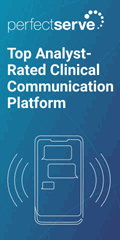The article about Pediatric Associates in CA has a nugget with a potentially outsized impact: the implication that VFC vaccines…
Intelligent Healthcare Information Integration 8/9/10
Not So Strange Bedfellows
An article in the Wall Street Journal recently reported on the increasing cohabitation of health insurers and electronic medical record companies. In moves that would surprise most of us about as much as hearing that Coke and Diet Coke are actually made by the same company, several large inscos have joined forces with EHR vendors to “help” docs with the transition to digitization.
OK, I admit that last sentence sounds as if I’m skeptical of the reasons behind these collaborations. And, well…I am…but, maybe not as much as I would have thought. After also reading about Surescripts partnering with Microsoft to offer Web-based access to prescription histories for consumers and about the health units of both GE and Intel getting together to form a new company focused upon “telehealth and independent living,” it occurred to me that in this mountainous mishmash we call our healthcare system here in the US, perhaps a little more collaboration might be a good thing.
Seriously, I think the majority of companies currently having even a foot within the healthcare sandbox would get Fs on their report cards to date in the “learning to work and play with others” category. Between proprietary this and antiquated that, it’s downright impossible to move along down the digital roadway until more players (and payers) learn that we all gain when we work together. Remember that little thing we all portend to care about — patients? Aren’t they better served when your tool plays well with mine? (Keep your minds out of the gutter.)
In her WSJ piece, author Avery Johnson (out of the gutter, I said) quotes the illustrious patient privacy rights advocate Dr. Deborah Peel, who has concerns about conflicts of interest which may put personal health data at risk. I see her point, but I also feel there is just way too much to gain and far too much we could do with all this data medically if we could access it more effectively. The inscos already have oodles of patient data; I’d love to be able to actually see what they see to see if I see what they see the same as they see it. See?
Aetna and IBM say their system will pool patient records, lab, and claims data to help docs “measure their care against national quality standards” and that the insurer won’t have access to the data, just the docs will. Wellpoint plans on helping rural hospitals build out IT, but won’t tie their billing into the EHR the hospital chooses.
Humana and athenahealth are getting even more skin into my game (“my” meaning the collective physician world) by helping to cover 85% (Stark?) of the costs of implementation and then actually paying up to 20% more if users show they can hurdle certain performance standards. (This is, I’ve heard, above and beyond any HITECH funds, but don’t quote me on that.)
Deborah, I agree that we really need to keep a very close eye on folks who have access to our patient data. But, if they are going to share what data they gather back with me so that I can watch them watching me, I think that way beats out the current system where they have it all and I’ve no clue about what data they’re using to make payer decisions.
Like it or not, until we have a monogamous, single payer relationship (coughs, harrumphs heard all around,) these are the Bobs and Carols and Teds and Alices with whom we are snuggled. We’re polygamous; we might as well admit it and figure out how to make this ménage a multitude work. Unless you want to start talking seriously about that single payer idea…
From the trenches…
“When I played in the sandbox, the cat kept covering me up.” – Rodney Dangerfield

Dr. Gregg Alexander, a grunt in the trenches pediatrician, directs the “Pediatric Office of the Future” exhibit for the American Academy of Pediatrics and is a member of the Professional Advisory Council for ModernMedicine.com. More of his blather…er, writings…can be found at his blog, practice web site or directly from doc@madisonpediatric.com.







On your last statement about a single pay system I have a few times stated that I wonder if we are going to end up there by default at the rate we are going here as the feeding frenzy could in fact create a need for a relief valve of some type and that could be it.
I did post today about a doctor group out of Texas and it was funny that the Wall Street Journal did their story about medical records; however, the one I posted was about a practice group who has worked hard, the use ECW and their leader is a doctor I know who spends time on his own to pitch medical records and does YouTube videos and you can’t get much better than Dr. Biggs here.
Blue Cross/Blue Shield shut them out on contract negotiations and the whole idea of my post was the fact that I think someone over looked value as these doctors live, breath and eat technology for better care and they were even going to have the first community HIE through the peer sharing that ECW has, so when I saw the notice that BC was no more, my question was, did the carrier see value in what the doctors were doing and have been doing for a number of years? They have been with BC for over 24 years as providers.
http://ducknetweb.blogspot.com/2010/08/hi-tech-doctors-group-in-amarillo-texas.html
I guess long and short of all this is if you are going to promote and secondly throw some money out there, take a look at value as a carrier and give credit at least where it is due for a group that is in fact leaders and examples for others. I’m sure this one may be one back at the table for more talks as that happens a lot these days too and perhaps someone was rushed and didn’t see the whole picture.
Have you ever wondered why the U.S. is so fanatic about Patient Privacy? I believe it is because we are afraid that our healthcare data will be used against us – by insurance companies (we know this is already true) and employers. If we “fixed” those 2 issues, would we really care about the privacy of our data? It is my understanding that Patient Privacy is much less of an issue in most of Europe. Could that be because they have universal coverage?? Until that time, I think that EHR vendors and Insurers make strange bedfellows.
Hi Gregg: We don’t have to have a single payer system to fix privacy–BTW that would not fix the very serious problem of stigmatizing or discriminating against CHILDREN and older people because of their diagnoses or genetic predispositions— what we need is a patient-centered health care system where each patient has a single robust independent consent tool, and ALL data holders are required to electronically check with our directives and consents before doing anything with our data. Our consent directives can be as detailed or broad as we wish, or a combination of some of each. If a situation is not covered by our consent directives, we could be pinged on our cell phones or by email for real-time consent.
On July 8th , Secretary Sebelius announced the new “Administration-wide commitment to make sure no one has access to your personal information unless you want them to.”
And Dr. David Blumenthal stated during the same press conference that “we want to make sure it is possible for patients to have maximal control over PHI (protected health information).”
The July 27th Senate Commerce, Science, & Transportation Committee hearing on Internet Privacy featured Julius Genachowski, the FCC chairman. He too strongly supports consumer control over personal information:
• “When consumers fear that their privacy is at risk, they are less likely to use new means of communication.”
• “The Commission’s overarching goals when it comes to privacy are to ensure that consumers are empowered to control how their information is used.”
When the heads of key federal agencies say consumers should control the use of personal information online and in electronic systems, it looks like the Administration REALLY is committed to building consumer controls into electronic systems and data exchanges. The problem is the industry appointees writing rules, policies, and standards clearly haven’t gotten the message. And the secret health data mining industry is expanding, stealing every bit of data they can.
The WSJ story is about how insurers, hardware vendors, and prescription data mining corporations are now offering electronic medical records to doctors’ offices and rural hospitals. Ask yourself the classic question: why are they doing this? Why are they offering systems free or at low cost? The answer is NOT because they are interested in improving our health, they are interested in improving profits by getting access to more and more detailed information about us, from prescription records and doctors’ notes to DNA.
This story does not mention the fact that business of selling Americans’ personal health information is worth billions/year. Sensitive personal health is THE most valuable kind of personal data that exists—it is FAR more valuable than what books you buy on Amazon or what movies you rent.
These corporations are NOT telling the public, doctors or rural hospitals, their shareholders or the WSJ that a key part of their business model is selling sensitive patient records. That is fraud. That is what Goldman Sachs did: the SEC caught Goldman Sachs misrepresenting what their actual business model is.
Owning, selling, or giving away for free electronic records systems today is a perfect way for health data mining corporations (insurers, health technology vendors, and others) to access everything your doctors and hospital staffs write about you. They get immediate, real-time access to every test, to every report, to every doctor’s note.
• Owning or having access to your entire medical record is the BEST way to get EVERY single bit of information about you.
• It’s much slower and harder for insurers to get more information about enrollees by denying claims payment and demanding information to justify the claim.
• Worse for patients is that many UNKNOWN insurers and other data mining corporations—that we have NO relationship with—will silently be getting our most sensitive personal information.
The corporations mentioned in this story, insurers like Aetna, hardware vendors like IBM, and prescription data miners like Allscripts say they want to “improve care and quality” by offering electronic health systems. After all potentially any electronic record system could enhance care, but they don’t mention that their real business model is selling more and more sensitive information about us. That is fraud—it is in fact an unfair and deceptive trade practice to tell the world “we are here to enhance your care”, when the real purpose is to enhance revenues by selling our personal data and destroying our health privacy for generations.
It is a now a violation of federal law to sell patient data without consent. Congress intended to end the secret health data mining and data theft industries by banning the sale of personal health information in the stimulus bill. But none of these corporations have been charged with selling patient data, much less investigated by Congress, the FTC, or HHS. IBM and Aetna even told the reporter that they buy data from other electronic records vendors!
Now when we go to hospitals or doctor’s office, we have to ask: does the health IT system pay you to sell my data, subsidize the cost of your health IT systems, or enable others to see and use my data?
To find where your sensitive protected health information goes, ask for an accounting of disclosures for the past three years from all doctors, hospitals, pharmacies, labs, x-ray facilities, etc. This a new consumer right in federal law, in the stimulus bill. Download a free request form at: http://patientprivacyrights.org/wp-content/uploads/2010/06/Record-Request.pdf
Best,
Deborah
Dr Alexander,
Thanks for your post re: docs and vendors playing nice together and the many challenges thereto. As an alternative I would suggest that what’s needed is a new paradigm – going beyond “proprietary this and antiquated that” – because in order to truly serve patients we need to change direction “along the digital roadway” and develop a Virtual Care Plan that follows the patient wherever they go. No more proprietary records systems sharing or not sharing — this system would display patient health data that is virtually stored and editable and viewable only by authorized individuals, and guess what — the data would belong to no single entity, only the PATIENT.